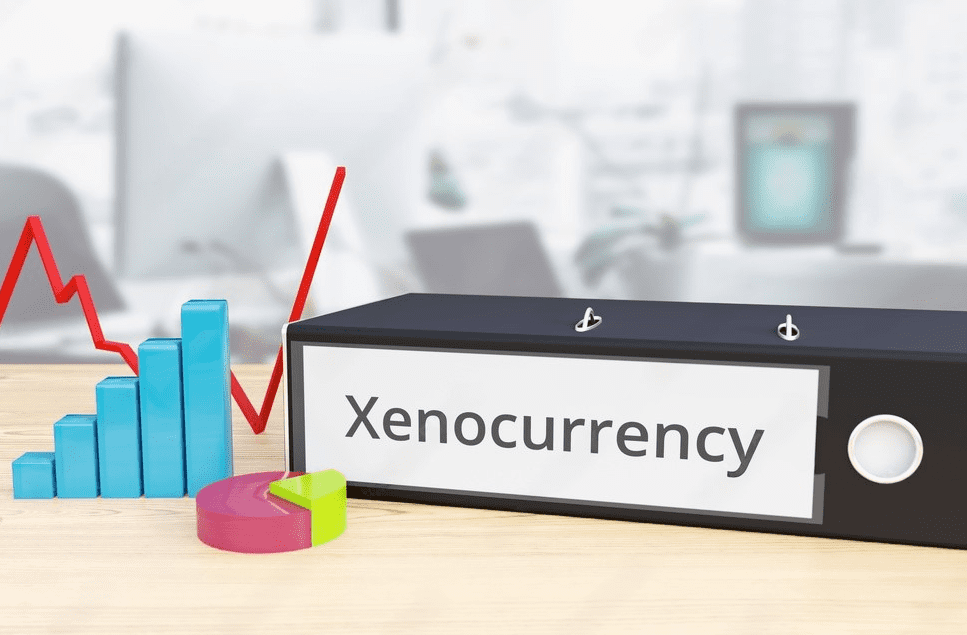Exploring Xenocurrency: The Future of International Finance
In the ever-evolving landscape of global economics, traditional financial systems are being challenged by technological advancements that are reshaping the way we perceive and transact value. One such innovation that has gained traction is the concept of "xenocurrency," a term that blends the prefix "xeno," meaning foreign or strange, with "currency." This fusion aptly captures the essence of an emerging financial paradigm that has the potential to revolutionize international finance.
Table Content
1. The Genesis of Xenocurrency
2. Breaking Barriers in Cross-Border Transactions
3. The Role of Smart Contracts
4. Challenges and Considerations
5. Shaping the Future of Finance
6. Footnote
The Genesis of Xenocurrency:
Xenocurrency is rooted in the idea of transcending national boundaries and currency limitations through the use of blockchain technology and cryptographic principles. While traditional currencies are centralized and regulated by respective governments and central banks, xenocurrencies operate on decentralized blockchain networks. This decentralized nature ensures that transactions are secure, transparent, and accessible across borders, irrespective of geographical location or jurisdictional constraints.

Bitcoin, the pioneer of cryptocurrencies, laid the foundation for this paradigm shift. However, xenocurrencies go beyond being mere digital assets; they aspire to become mediums of exchange that challenge the very notion of sovereignty associated with traditional currencies. The concept gained prominence with the rise of cryptocurrencies like Ethereum, Ripple, and Stellar, each presenting a unique approach to international finance.
Breaking Barriers in Cross-Border Transactions:
The current international financial system is plagued by inefficiencies in cross-border transactions. Traditional methods involve multiple intermediaries, steep fees, and prolonged processing times. Xenocurrencies promise to eliminate these bottlenecks by enabling peer-to-peer transactions that bypass intermediaries. This could lead to faster and cost-effective cross-border payments, thereby boosting global trade and financial inclusion.
Consider a scenario where a small business owner in a developing country wishes to engage in international trade. Using xenocurrency, they could transact directly with their overseas partners, avoiding the exorbitant fees associated with currency conversions and wire transfers. This democratization of financial services has the potential to empower individuals and businesses in emerging economies, driving economic growth and reducing inequality.
The Role of Smart Contracts:
At the heart of xenocurrency's potential lies the concept of smart contracts. These self-executing contracts, encoded on blockchain networks, automatically enforce and verify the terms of an agreement when predefined conditions are met. Smart contracts can revolutionize international trade by automating processes that traditionally required intermediaries, such as customs clearance, documentation, and payment settlements.
For instance, a shipping contract involving multiple parties – the exporter, shipping company, customs, and importer – can be executed seamlessly using smart contracts. As soon as the shipment reaches its destination and customs clearance is obtained, the smart contract triggers the release of payment to the exporter. This not only streamlines the process but also reduces the risk of disputes and fraud.
Challenges and Considerations:
While xenocurrency offers a promising vision of the future of international finance, it is not without challenges. One of the primary concerns is regulatory uncertainty. As governments and regulatory bodies grapple with the implications of these borderless digital currencies, there is a need for clear and adaptable regulations that foster innovation while addressing potential risks such as money laundering, fraud, and market manipulation.
Another hurdle is the volatility commonly associated with cryptocurrencies. The value of traditional fiat currencies is generally more stable, while cryptocurrencies can experience extreme price fluctuations. This volatility can pose risks to businesses and individuals who rely on stable value for transactions and investments. To counter this, some xenocurrencies are exploring mechanisms to peg their value to stable assets, offering a middle ground between volatility and decentralization.
Scalability is also a pressing issue. The current blockchain infrastructure faces limitations in terms of transaction speed and volume. To achieve mass adoption for international financial transactions, xenocurrencies must develop solutions that can handle a high volume of transactions without compromising on security and decentralization.
Shaping the Future of Finance:
Xenocurrency has the potential to redefine how we conduct international financial transactions, foster economic growth, and empower individuals in underserved regions. The underlying technology not only enables efficient and secure transactions but also promotes financial inclusion by providing access to financial services for the unbanked and underbanked populations around the world.
As xenocurrencies continue to evolve, they could pave the way for a truly global financial system that operates beyond the limitations of traditional borders and currencies. The technology's ability to facilitate seamless cross-border transactions, automate complex processes, and enhance transparency could lead to increased economic efficiency on a global scale.
Footnote:
In summary, the concept of xenocurrency represents a paradigm shift in international finance. Its potential to disrupt traditional financial systems, streamline cross-border transactions, and empower individuals and businesses in emerging economies is immense. However, realizing this potential requires addressing regulatory challenges, ensuring stability, and scaling the technology to accommodate global demands. As governments, businesses, and innovators collaborate to shape the future of finance, xenocurrency stands as a beacon of a more interconnected and inclusive financial world.











Discussion